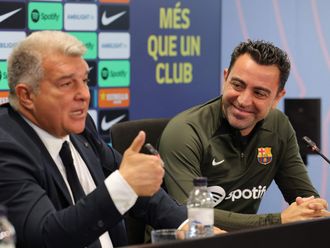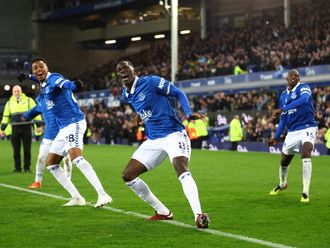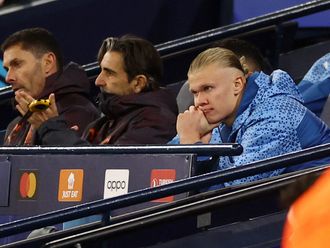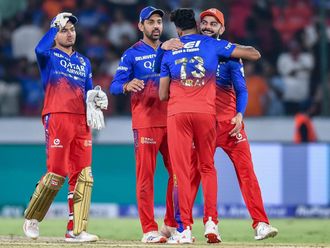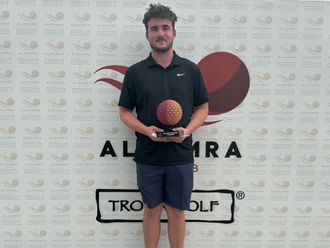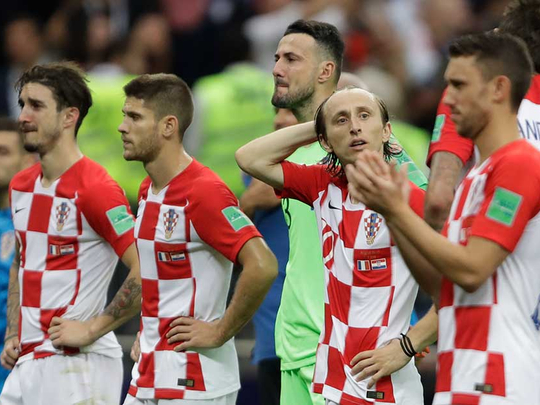
Moscow: The greatest days of a footballer’s career are subject to so many factors they cannot control — a teammate’s mistake, a bad call from their manager, a referee seduced by a Video Assistant Referees review — but what is under their aegis is the style of their performance.
Croatia lost a World Cup final but, at least, they played like Croatia, the remarkable little strife-ridden football nation of just over four million people that went all the way to the greatest game of all.
They walked straight into the France game plan, that was always going to be the France way — a unambitious counter-attacking style that would have left manager Didier Deschamps without a leg to stand on had it failed.
France relied on their capacity to shut down their own defensive third, while waiting for their opposition to cough up the advantage and when finally Croatia did so, it was never coming back.
There was the VAR decision by the Argentine referee Nestor Pitana for the penalty that might have gone away had he not been called over the review screen.
Before that, there was the soft free-kick he awarded to Antoine Griezmann from which France scored their first. Yet even when the second half started it still felt like Croatia were in this game, and capable of going up a gear as they had in the semi-final against England after half-time.
At 2-1 down and an hour played, Croatia were still in it before Paul Pogba scored France’s third.
The Croatia goalkeeper Danijel Subasic, carrying an injury since the second-round win over Denmark, looked static and immobile, and was nowhere near a shot struck by Pogba with his instep. There were questions, too, over the fourth from Kylian Mbappe, driven sharply, but by no means unsaveable for Subasic. Suddenly, the final was over.
Between them, Luka Modric, Ivan Rakitic, Mario Mandzukic and the rest had 66 per cent of the possession, the kind of control of a game that Pep Guardiola, the Manchester City manager, would consider adequate, yet very few of the decisive moments.
They needed to be lucky, and aside for one howler from Hugo Lloris for the second of their two goals, that part eluded them.
It meant that Modric stepped up to receive the Golden Ball trophy for the tournament’s outstanding player looking like a very sad Year Seven in assembly, who has won the award he did not want.
He was embraced by the Croatia president Kolinda Grabar-Kitarovic, who was soaked by the thunderstorm that struck before the trophy parade, but determined to enjoy her moment.
Whether this performance, like the six that have preceded it, will affect Modric’s precarious legal situation in Croatia remains to be seen. He perjured himself in the case to convict Zdravko Mamic, the former Dinamo Zagreb executive now living in exile in Bosnia, which carries a five-year jail sentence, and the country is divided over their greatest player.
World Cup finalists and an administrative mess, Croatian football is like no other in Europe.
The Uefa Nations League game against England in October will be played behind closed doors as a consequence of their supporters’ own attempts to sabotage the team over the Mamic case.
The swastika cut into the pitch and the organised violence at Euro 2016 was unforgivable, a football nation out of all control and yet its team is still improbably competing among the elite. This was a defeat in the biggest game of their lives, but it was also an end to the suspension of reality that these players will have enjoyed as they progressed through this tournament. There were some hard stares among the Croatians as they waited interminably for the trophy presentation — the faces one might expect of the losers on an occasion of this magnitude but also suggesting bigger issues at play.
In qualifying, they had lost to Turkey and Iceland as well as drawing at home with Finland. They only clinched a place in the play-offs with a final victory over Ukraine and went on to beat Greece over two legs.
Nikola Kalinic was sent home by the coach Zlatko Dalic after the first group game, having been accused of refusing to come on against Nigeria.
For the past four years, right up to the aftermath of the first game of this tournament, all the signs have indicated a crisis and yet, somehow, they kept going.
Against England in the semi-final, the midfielder Marcelo Brozovic broke the tournament record for distance covered, 16.33km. Ivan Perisic announced himself to be more than the player many thought he was.
Croatia leave Russia having played an aggregate 90 minutes more than France over those three periods of extra-time and yet still they covered more ground cumulatively in the final than their opponents. Then there is Modric, with his unique understanding of the ever shifting patterns of space and opportunity in the game, the kind of player that every nation seeks to produce but so few do.
Even now, as he emerges as a serious contender to break the 10-year duopoly of the Ballon d’Or, the Mamic case hangs over him.
A defeat on the day, wrapped around the bigger picture of a triumph for a tiny country that would not ordinarily reach a World Cup final in the modern era. It should be cause for celebration but, as with so much in Croatian football, the reality is much more complicated than that.
— The Telegraph Group Limited, London 2018


